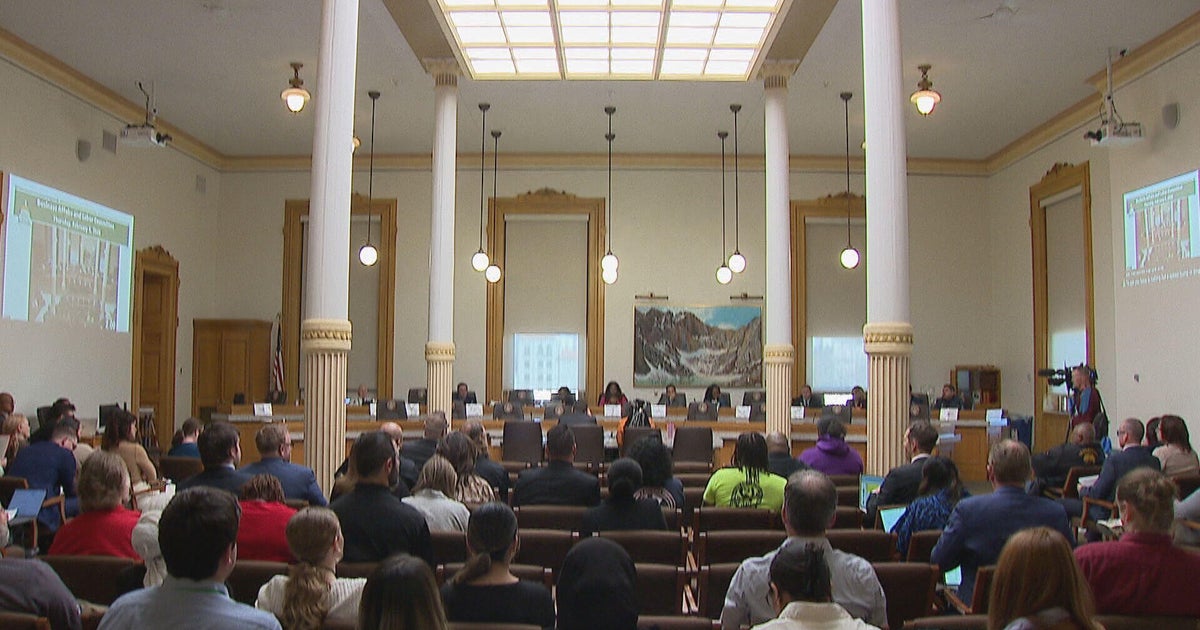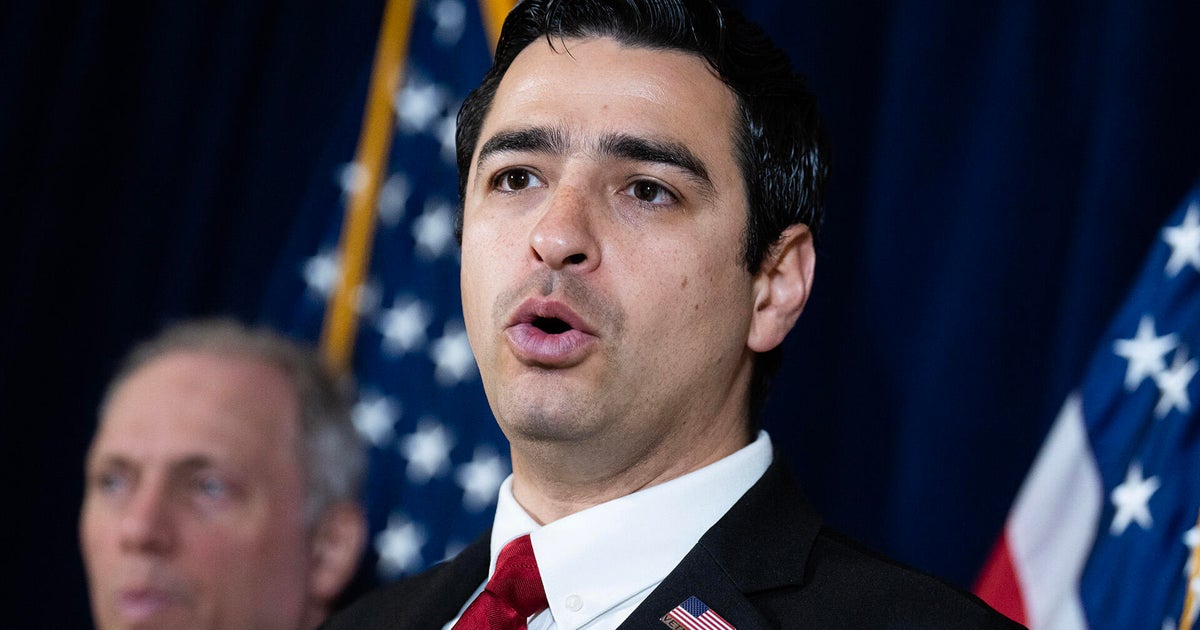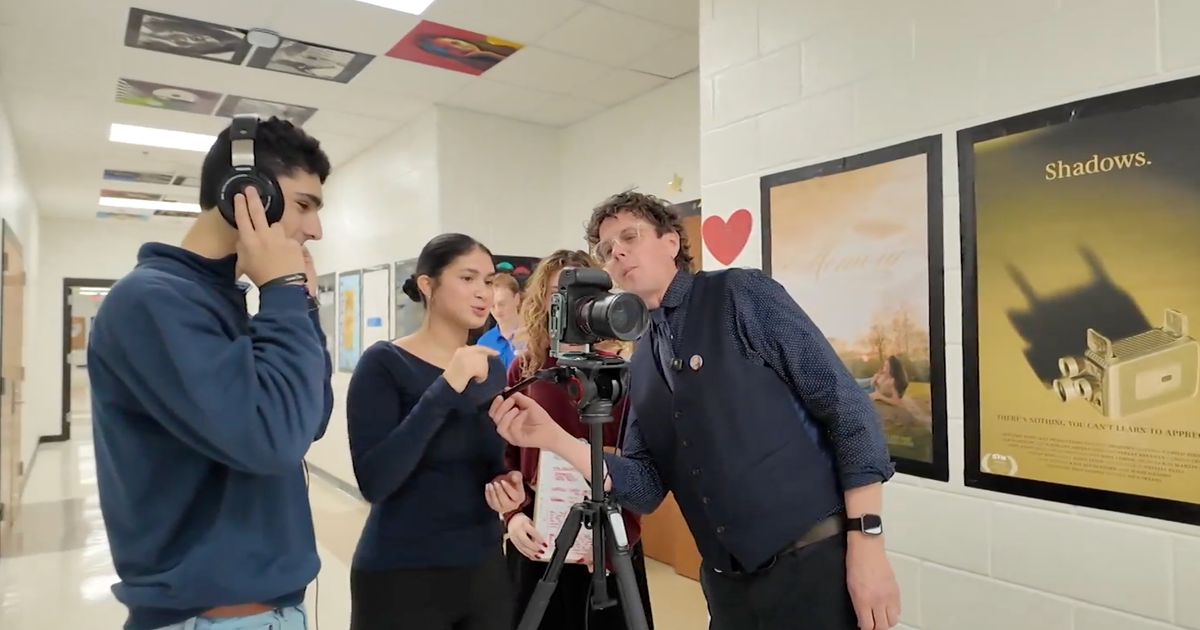Much Ado About Algebra II
AUSTIN (AP) - The math class of exponents and imaginary numbers - and a potential predictor of a student's success in college and in life - has become a key point of contention as the Texas Legislature grapples with overhauling high school graduation requirements statewide.
Several bills before lawmakers would tweak graduation rules to give students more options in career training and vocational skills, thus aiming to help them land well-paying technical jobs that don't necessarily require college degrees.
But that could mean no longer requiring Algebra II for all students, something opponents say will ultimately produce future Texans who are less prepared for the workforce of the future - not more so.
The most high-profile proposal has come from Houston Republican Dan Patrick, who chairs the state Senate Education Committee. His Senate Bill 3 has been endorsed by more than a dozen industry trade groups concerned about a "skills gap" between Texas high school graduates and the technical jobs firms need to fill.
Others in the business community, though, fear watering down academic standards, especially since the bill may no longer require all students to take Algebra II.
"Not all students are going to need Algebra II, but we need a lot more than are taking it now," said Justin Yancy, executive director of the Texas Business Leadership Council. Although Yancy said he didn't want to be critical of efforts to give high school students more curriculum flexibility, he said "the data shows we've gotten less educated with each passing decade as a state."
"That's not a trend we are going to reverse by lowering expectations," he said.
Current Texas law requires high school students to take Algebra II and to undergo standardized testing in it. That means answering questions such as: "A monthly cell phone plan charges $5 for the first 300 text messages used and $0.15 for each additional message. On this plan, what is the number of text messages that must be used in a month in order to make the average cost per message $0.05?" (Answer: 400)
That kind of academic rigor has made Texas a leader nationwide in college and career readiness, but now that's in jeopardy, said Michael Cohen, president of Achieve, a Washington-based nonprofit dedicated to strengthening academic standards nationwide.
Cohen said he understands that "people worry that if you make kids take more rigorous math, then you'll lose them." But he also asked: "What kind of technical training doesn't require some kind of advanced mathematics?"
He said federal studies have found that students who complete Algebra II in high school more than double their chances of earning four-year college degrees.
"It's not like people made up the idea, 'Let's all take Algebra II for the fun of it.' It was looking at what people do after they leave high school, what kind of education and training programs you want to prepare them for," said Cohen, whose group has pushed for the course's inclusion in curriculums nationwide.
Others say that rather than better-preparing students for future academic success, Algebra II is simply a course that highly motivated students are more likely to take. Indeed, there's enough doubt on the issue that some are reserving judgment for now, including the Texas PTA.
"Experts are not agreeing whether Algebra I or II provides the best rigor for college and workforce preparedness," said Kyle Ward, its executive director.
Still, both sides of the argument were on display during a Senate Education Committee hearing this week, where Patrick said he'd heard from scores of teachers who point to Algebra II as the reason many students drop out. He added that, "It's the belief of business that not every student may need Algebra II and they may want to take accounting or business math, or some other course in a career."
Raymond Paredes, Texas' higher education commissioner, said the state's default curriculum should include Algebra II and an option to let some students opt out of it, rather than simply letting students choose not to take it from the beginning. He worried that Patrick's proposal "will not prepare a significant number of students for either technical careers or higher education."
"There are too many, you call them 'options' I call them loopholes," Paredes said. Patrick countered that, "If you require Algebra II for every student, you're going to see a massive dropout rate."
But Paredes responded that research shows that "regardless of what students want to go into beyond high school, that a course like Algebra II teaches a higher order of thinking skills, critical reasoning skills, more effectively than just about any other course."
"And the number one complaint I hear from potential employers about their potential employees," he added, "is that they lack critical thinking skills."
(© Copyright 2013 The Associated Press. All Rights Reserved. This material may not be published, broadcast, rewritten or redistributed.)
Also Check Out:
- Emmitt Smith Says New Safety Rule Means NFL Has "Lost Its Mind"
- Deion Sanders Divorce Drama Gets Nastier With Steroid Allegations
- Woman Defends Beating Son Caught In Homosexual Act
- Dallas Hospital Offers Free Facial Surgery For African Girl
- Good Samaritan Critically Injured Helping Driver
MOST VIEWED GALLERIES
- PHOTOS: Your Pet Pictures
- PHOTOS: 105.3 The Fan In New Orleans - Day 5
- PHOTOS: Top 10 Cars We Miss







